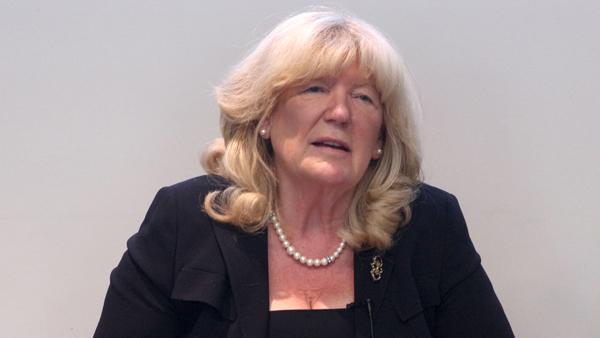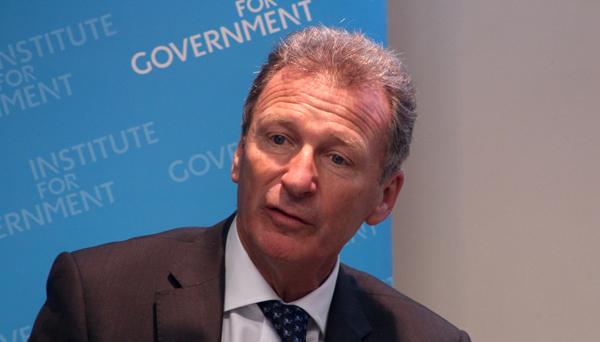The Conservatives have won an unexpected outright victory. Their 12-seat majority is the narrowest enjoyed by any new government since 1974, and governing with such a small majority will pose a number of challenges. But the government also starts with some distinct advantages, as Akash Paun heard at an Institute for Government event on Monday.
“Make sure, in whipping terms, that you divide and rule”, Baroness Taylor If 12 doesn’t sound like a particularly strong foundation from which to govern for five years, the more important number may turn out to be the 99-seat lead the Conservatives have over the Labour Party. This healthy margin minimises the chances of Labour springing defeats upon the government. To defeat the government, the opposition parties would have to show remarkable unity – and pull in a sprinkling of Conservative rebels too. Baroness Taylor, a junior whip during the minority government of James Callaghan and chief whip under Tony Blair, explained that in these circumstances ‘divide and rule’ becomes the most important tactic for government whips. And this tactic can be used in both directions – just as important as splitting the opposition parties is ensuring that your own backbench malcontents don’t all rebel at the same time.

Baroness Taylor speaking at the Institute for Government
For Lord O’Donnell, Principal Private Secretary to John Major after 1992 and later Cabinet Secretary, it’s often the ex-ministers that are “really, really irreconcilable” and cause the greatest difficulty to government. David Cameron’s emphasis on continuity in his post-election reshuffle may therefore turn out to have been a sensible move in terms of party management as well as government continuity. “If I were Cabinet Secretary, I’d be putting a line through half of the stuff [in the Queen’s Speech]”, Lord O’Donnell As well as fostering party unity and opposition disunity, party whips have a third task. As Baroness Taylor explained, they’re often called upon to talk over-confident ministers into watering down legislative plans guaranteed to run into trouble. Having outperformed expectations on 7 May and escaped the constraints of coalition, the new government will have to take care to avoid hubris and unforced errors. This is what Peter Riddell, the Institute for Government’s Director, called the “paradox of the unexpected victory”. A similar point was made by Lord O’Donnell, who advised the government to “pick your battles” with care. A government with a slender majority is likely to lose occasional votes, and where possible should “find another way” rather than reaching for legislation as the first tool of choice. Greater quality rather than quantity of legislation would also be a welcome development, he said, and the Prime Minister (nudged by the Cabinet Secretary) ought to cut unnecessary items from the new legislative programme that the Queen will unveil next week.

Lord O'Donnell speaking at the Institute for Government
In many areas, the government won’t not need new legislation to achieve its objectives, Peter Riddell emphasised. The statutory foundations for the government’s major NHS, schools and welfare reform programmes were all laid down under the coalition, and the crucial task for the new government is to ensure effective implementation and management of these reforms. Likewise, Parliament is barely involved in other major decisions such as the spending review or reform of the UK’s defence capacity. That said, the panel all recognised that there are some potential flashpoints in Parliament – particularly in the constitutional sphere, where devolution, human rights reform, boundary changes and the relationship with Europe all loom large. These are also the types of issue in which the House of Lords is most likely to take the closest interest. As Professor Robert Hazell pointed out from the floor, the Blair and Brown governments lost a total of five votes in the House of Commons, but were defeated 500 times in the upper house. The swing voters in that era were nearly always the Liberal Democrats, who for the past five years were less likely to oppose the government of which their party was a part. With the party back in opposition, greater conflict between the two Houses may be on the cards. However, Peter Riddell questioned how assertive the party of proportional representation could be, now that their 100-strong group of peers hold a significantly greater proportion of lords seats than the 7.8% vote share they won on 7 May. “When it’s tumultuous, it tends to be more interesting”, Baroness Taylor Looking ahead, the big ‘known unknown’ is the outcome of the EU referendum, where a vote to leave the EU might also trigger the breakup of the UK. “Brexit leads to Scexit” as Lord O’Donnell put it, while Peter Riddell described such a scenario as “cataclysmic”. But another lesson from history is that it can be the unexpected events that knock a government irrevocably off course: Black Wednesday in 1992, for example, and the winter of discontent in 1978-79. The UK’s entire political forecasting industry was, after all, embarrassed by the unexpected election outcome less than two weeks ago. With the government just out of the starting blocks, predicting how it will fare over the next five years is a foolhardy pursuit. But this event did at least identify where some of the most obvious hurdles and pitfalls lie.
- Keywords
- Parliamentary scrutiny
- Position
- Whips
- Administration
- Cameron government
- Publisher
- Institute for Government